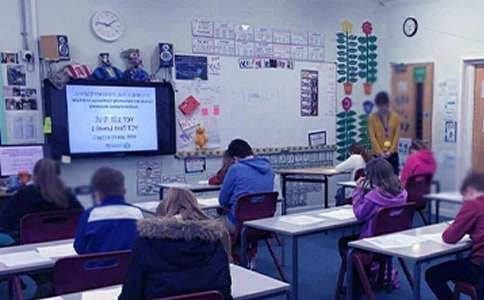- 相關推薦
2023公共英語一級考試語法解析
距離2023公共英語一級考試還有三個月的時間,為了大家更好地掌握好公共英語一級考試語法,小編為大家解析公共英語一級語法,供大家參考。

【冠詞】
1.不定冠詞a,an
表示one或every。如:You have a mouth。
表示某一類人、事或物,相當于any。如:A spade is a tool。
用于某些固定詞組中。如:a bit,a lot of。
泛指某人或某物。如:A boy is waiting for her。
用在rather,many,what等詞之后。如:You are rather a fool。
注意:名詞以元音音素開頭時,前面若加不定冠詞,要用“an”。
2.定冠詞the
表示上文已提到過或下文將要提到的人或事物。如:I am very interested in the book。
表示獨一無二的人或事物。如:the world,the sun,the moon,the earth。
用在序數詞、形容詞最高級及對兩人或物進行比較時起特定作用的比較級前。如:the young,the second story,the largest room。
用在以-ese,-ch,-sh等結尾和表示國家、黨派等專有名詞前,以及在江、河、湖、海、山川、群島的名詞前。如:the Communist Party of China,the Changjiang River,the Great Lake。
用在方位名詞前以及某些表示時間的詞組或習慣語中。如:in the west,on the right。
用在形容詞前表示一類人。如:the young,the dead。
在姓氏復數形式前,表示全家人,或這一姓氏的夫婦倆。如:The Turners are sitting at the breakfast table。
用在單數可數名詞前,表示某一類人或事物。如:The horse is a use-ful animal。
在藝術、文娛活動名稱前通常用定冠詞。如:go to the cinema。
3.不加冠詞
(1) 一般專有名詞、物質名詞、抽象名詞、人名、地名等名詞前不加冠詞。如:America,China,Shanghai Railway Station。但是當一個抽象名詞或物質名詞被限定時,前面加the。如:The milk in the bottle has gone bad抽象名詞或物質名詞前或后加上表示其特殊性質或類別的修飾詞,指概念的“一種”、“一類”、“一次”等時,用不定冠詞。如:After a swim,he had a rest。
(2) 可數名詞前有物主代詞、指示代詞、不定代詞、名詞所有格等限制時,不加冠詞。如:This book is mine。
(3) 季節、月份、日期、一日三餐前一般不加冠詞。如:Summer is the warmest season of the year。如果月份等被一個限定性定語修飾,就要加冠詞。如:Jack joined the Army in the spring of 2002。
(4) 表示語言學科名稱、球類運動的名詞前一般不用冠詞。如:He is studying French in Paris。但是在the Chinese language,the English lan-guage等中要用定冠詞。
(5) 在以“普通名詞或形容詞最高級+as”開始的讓步狀語從句中,前面不加冠詞。如:Shortest as he is。
【數詞】
表示數目多少或順序多少的詞叫數詞,數詞分為基數詞和序數詞。表示數目多少的數詞叫基數詞;表示順序的數詞叫序數詞。
(一)、基數詞
1.數字的表示 三位數數詞要在百位和十位(若無十位則和個位)之間加and。1,000以上的數字,從后向前第三位數加一個“,”,第一個“,”前為thousand,第二個“,”前為million,第三個“,”前為billion。
例如:345 讀作three hundred and forty-five;
2. 基數詞一般是單數形式,但下列情況,常用復數:
a. 與of 短語連用,表示概數,不能與具體數目連 用,如scores of people 指許多人;
b. 在一些表示"一排"或"一組"的詞組里;
如:They arrived in twos and threes. 他們三三兩兩的到達了。
c. 表示"幾十歲";
d. 表示"年代",用 in +the +數詞復數;
e. 在乘法運算的一種表示法里,如:3 x 5 = 15 Three fives is (are) fifteen.
3.分數分子在前,分母在后,分子用基數詞,分母用序數詞,當分子大于1小時,分母序數詞要變成復數。
4.Hundreds(thousands,millions)of……用法:
a. 具體數字+hundred/thousand/million(不用復數形式),如:two hundred+名詞復數
b. 沒有具體數,加“s ” 加 “of” 如:hundreds/ thousands/millions+of +名詞復數
(二)、序數詞
序數詞的縮寫形式:first---1st second---2nd thirty-first---31st
序數詞除了first,second,third外,其余都在基數詞尾加-th構成。
(三)、 數詞的用法
1)倍數表示法
a. 主語+謂語+倍數(或分數)+ as + adj. + as
I have three times as many as you. 我有你三倍那么多。
b. 主語+謂語+倍數(分數)+ the size (amount,length…) of…
The earth is 49 times the size of the moon. 地球是月球的49倍。
c. 主語+謂語+倍數(分數)+ 形容詞(副詞)比較級+ than…
The grain output is 8 percent higher this year than that of last year.
今年比去年糧食產量增加8%。
d. 還可以用by+倍數,表示增加多少倍
The production of grain has been increased by four times this year.
今年糧食產量增加了4倍。
2)分數表示法
構成:基數詞代表分子,序數詞代表分母。分子大于1時,分子的序數詞用單數,分母序數詞用復數:1/3 one-third ; 3/37 three and three-sevenths.
【形容詞,副詞】
形容詞及其用法
形容詞修飾名詞,說明事物或人的性質或特征。通常,可將形容詞分成性質形容詞和敘述形容詞兩類,其位置不一定都放在名詞前面。
1) 直接說明事物的性質或特征的形容詞是性質形容詞,它有級的變化,可以用程度副詞修飾,在句中可作定語、表語和補語。例如:hot 熱的。
2) 敘述形容詞只能作表語,所以又稱為表語形容詞。這類形容詞沒有級的變化,也不可用程度副詞修飾。大多數以a開頭的形容詞都屬于這一類。例如:afraid 害怕的。
(錯) He is an ill man. (對) The man is ill.
(錯) She is an afraid girl. (對) The girl is afraid.
這類詞還有:well,unwell,ill,faint,afraid,alike,alive,alone,asleep,awake 等。
3)形容詞作定語修飾名詞時,要放在名詞的前邊。但是如果形容詞修飾以-thing為字尾的詞語時,要放在這些詞之后,例如:something nice
用形容詞表示類別和整體
1) 某些形容詞加上定冠詞可以泛指一類人,與謂語動詞的復數連接。如:the dead,the living,the rich,the poor,the blind,the hungry
The poor are losing hope.
2) 有關國家和民族的形容詞加上定冠詞指這個民族的整體,與動詞的復數連用。
the British,the English,the French,the Chinese.
The English have wonderful sense of humor.
以-ly結尾的形容詞
1) 大部分形容詞加-ly可構成副詞。但 friendly,deadly,lovely,lonely,likely,lively, ugly,brotherly,仍為形容詞。
改錯:(錯) She sang lovely. (錯) He spoke to me very friendly.
(對) Her singing was lovely. (對) He spoke to me in a very friendly way.
2)有些以-ly 結尾既為形容詞,也為副詞。
daily,weekly,monthly,yearly,early
The Times is a daily paper. The Times is published daily.
多個形容詞修飾名詞的順序
多個形容詞修飾名詞時,其順序為:
限定詞--數詞--描繪詞--(大小,長短,形狀,新舊,顏色) --出處--材料性質,類別--名詞
a small round table a tall gray building
a dirty old brown shirt a famous German medical school
an expensive Japanese sports car
worth 的用法
worth,worthy,worth-while都為adj. 意為"值得"。
1. worth:be worth + n. 當名詞為金錢時,表示"…… 值得……"
be worth doing sth. "……某事值得被做"
The question is not worth discussing again and again.
2. worthy:be worthy of +n. 當名詞為抽象名詞時表示"……值得……"
be worthy to be done "某事值得被做"
The question is not worthy to be discussed againand again.
3. worth-while:be worth-while to do sth "值得做某事"
worth while:It is worth while doing sth
It is worth while sb to do sth.
典型例題
It is not ____ to discuss the question again and again.
A.worth B.worthy C.worth-while D.worth while
答案C. 由worth的用法可知,此句只適合詞組be worth-while to do sth.。
公共英語一級考試閱讀提點練習
part 1
In a good cartoon, the artist can tell in a few lines as much as a writer can tell in half a dozen paragraphs. The cartoonist not only tells a story but he also tries to persuade the reader to his way of thinking. He has great influence on public opinion. In a political campaign, he plays an important part. Controversial issues in Congress or at meetings of the United Nations may keep the cartoonist well-supplied with current materials.
A clever cartoonist may cause laughter because he often uses humor in his drawings. If he is sketching a famous person, he takes a prominent feature and exaggerates it. Cartoonists, for instance, like to lengthen an already long nose and to widen an already broad grin. This exaggeration of a person’s characteristics is called caricature. The artist uses such exaggeration to put his message across.
Useful Words and Expressions:
1. cartoonist 漫畫家
2. campaign 活動
3. controversial 爭論的,爭議的
4. sketch 素描
5. prominent 卓越的
6. exaggerate 夸張
7. lengthen 延長
8. grin 露齒笑
part 2
“House” and “home” are two words that have similar meanings.
“House” and “home” both refer to places where people live. However, there is a difference between them. “Home” is often referred to as the place that we live in with our families. Sadly, in our society, people can hardly distinguish a home from a house because they often see no difference between them. This confusion can be traced back to the indifference between family members. Therefore, we can say that love is an important factor in a home. A home is a shelter, not only for our bodies but also for our minds. Whenever we are depressed, we can go home for comfort. Everyone in the family will do his best to take care of each other and share their happiness as well as sorrow. Without love, a home is merely a house where loneliness is all that can be found. And a house can never be a home unless there is love.
Useful words and expressions:
1. refer to 提到
2. distinguish區別,辨別
3. confusion 混亂,混淆
4. trace back 追溯到
5. indifference 不關心
6. depressed 沮喪的
【公共英語一級考試語法解析】相關文章:
SAT語法考試的出題方式解析01-20
2017公共英語一級試題及答案解析01-20
全國公共英語三級常見語法解析01-22
公共英語三級常見語法解析:動詞的時態03-27
托福考試語序語法解析03-04
托福語法解析12-30
日語能力測試一級考試語法03-05
解析托福考試頻繁出現的語法03-04